Neurological Disorders
What Is A Neurological Disorder?
A neurological disorder is a condition that involves dysfunction or abnormalities in the structure or function of the nervous system. This can affect the brain, spinal cord and peripheral nerves, leading to a range of symptoms such as tremors, seizures or cognitive impairment which can have a significant impact on an individual’s overall well-being.
The Oak Tree Practice endeavours to support those facing these difficult symptoms, offering coping mechanisms on how to manage them. Our team of 37 experienced psychologists and psychotherapists are dedicated to assisting those who may need guidance.
What Are Some Examples Of Neurological Conditions?
Our team are trained to assist those experiencing neurological conditions. Examples include but are not limited to:
Traumatic Brain Injury
A traumatic brain injury is a disruption in normal brain function caused by an external force, such as a blow or jolt to the head. The injuries can range from mild to severe, and the effects may include impaired memory, changes in behaviour or difficulties with motor skills. Traumatic brain injury psychologists can provide support if needed.
Acquired Brain Injury
Acquired Brain Injury refers to any damage to the brain that occurs after birth. This category includes injuries caused by accidents, infections, strokes or other medical conditions, leading to a diverse range of cognitive, physical or emotional impairments. Therapeutic support may be beneficial depending on the situation.
Stroke
A stroke occurs when there is a sudden disruption of blood flow to the brain. This can lead to potentially severe neurological consequences such as paralysis, difficulty speaking or cognitive impairment. A psychologist for stroke patients can offer valuable support during this challenging time.
Multiple Sclerosis
Multiple Sclerosis (MS) is a chronic autoimmune condition where the immune system mistakenly attacks the protective covering of nerve fibres, disrupting communication between the brain and the rest of the body. This can result in a wide range of symptoms, including fatigue, difficulty walking, numbness or tingling and impaired coordination, making MS a complex neurological disorder.
Parkinson’s Disease
Parkinson’s disease is a progressive neurological disorder that primarily affects movement, and is characterised by tremors, stiffness and difficulty with balance and coordination. It often causes challenges in carrying out daily activities which can be difficult for both the personal involved and their loved ones to deal with. Therapy can offer useful support and guidance for this.
How Does Therapy For Neurological Disorders Work?
Step 1: Initial Assessment
The first step will involve a thorough psychological assessment to understand the emotional and cognitive impact of the neurological disorder. Our expert psychologist will utilise various tools to evaluate factors such as mood, stress levels, coping mechanisms and cognitive functions. This assessment helps to identify specific challenges, emotional distress or cognitive impairments that may arise due to the neurological condition.
Step 2: Tailored Support
Our professional will use intervention strategies to address the psychological aspects of the neurological disorder. Cognitive Behavioural Therapy (CBT), mindfulness-based interventions or supportive counselling may be employed to help individuals cope with the emotional challenges or adjustment issues related to their condition. The focus is on building resilience, enhancing coping skills and fostering a positive psychological outlook.
Step 3: Strategy Planning
A long term support plan may be encouraged depending on the extent of symptoms, with periodic therapy sessions to monitor emotional well-being. The therapist can continue to provide coping strategies for evolving challenges, and promote overall mental health and resilience throughout the course of the neurological disorder. This would be collaborative based on what the individual or their loved one feels they would benefit from.
Can I Get Therapy For Neurology Near Me?
Need a neurological psychologist near me? Look no further! The Oak Tree Practice offers therapy support for those based all across the UK.
Our therapists offer in-person sessions in our clinics in London in Finchley (N3 2JU), Brixton/Clapham (SW2 5UL) or Hackney (E2 9FN), and home visits are available on request. We can also arrange telephone appointments or online sessions via zoom, meaning that you can get psychologist support from wherever you are based. Locations include but are not limited to Ripon, Sheffield, Salisbury, Surrey, Southampton, Warwick, Worcester and York.
How Can A Neurological Psychologist Help Me?
Our team at The Oak Tree Practice comprises of 37 Clinical Psychologists, Counselling Psychologists, Psychotherapists and CBT Therapists who are all highly qualified with many years of experience. They are dedicated to helping individuals get the support that they need.
We offer valuable tools to help patients deal with neurological conditions through useful techniques, coping strategies and therapeutic support. You can enquire via our contact form, Whatsapp us on 07926 713 198 or call us on

Client Testimonials For Issues We Have Helped With
Frequently Asked Questions About Neurological Disorders
What Are Some Common Neurological Symptoms?
Common neurological symptoms include headaches, dizziness and numbness or tingling sensations. Other prevalent signs may involve difficulties with coordination, changes in vision, memory problems or alterations in speech patterns, all of which can indicate underlying neurological issues requiring further evaluation and diagnosis.
Is Autism A Neurological Disorder?
Yes, autism is recognised as a neurological disorder that affects brain development, leading to challenges in social interaction, communication and repetitive behaviours. Individuals with autism spectrum disorder (ASD) exhibit a diverse range of symptoms and abilities.
Is ADHD A Neurological Disorder?
Yes, Attention Deficit Hyperactivity Disorder (ADHD) is classified as a neurological disorder. It is characterised by persistent patterns of inattention, hyperactivity and impulsivity that can significantly impact an individual’s daily functioning.
Can I Visit A Stroke Psychologist Near Me?
Yes, you can visit one of our offices in Finchley, Hackney or Brixton/Clapham. Alternatively, if you live further afield you can have a telephone consultation or online zoom session with one of our therapists.
Do You Offer Self-Funded Therapy Sessions?
Yes, we do offer self-funded therapy appointments. You can find out more about our fees and make a payment here. There is also usually the option to have your session covered by insurance such as AXA, Vitality Health, BUPA, Cigna, WPA or Simply Health.
How Long Do Appointments Last?
Therapy sessions last 50 minutes and can be completed in-person, online or over the phone. To book an appointment, enquire via our contact form, Whatsapp us on 07926 713 198 or call us on
